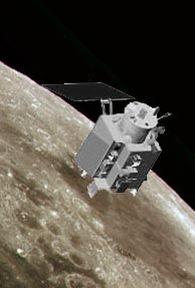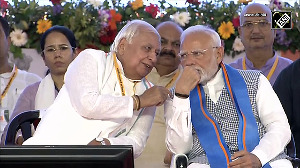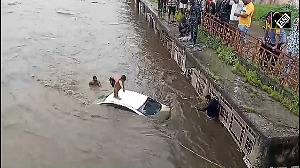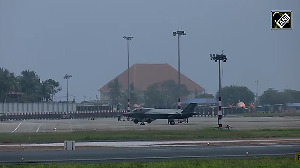 India's second mission to Moon appears to be stuck.
India's second mission to Moon appears to be stuck.
That’s because there appears to be uncertainty over availability of a lander from Russia even as the 'desi' rocket to launch the space odyssey would take time to become operational.
The ambitious Chandrayaan-2 project seems to be in a limbo with both Indian and Russian sides beset with their own space technology-related issues, pushing the joint moon exploration mission, already hit by time overruns, to the back-burner.
"Chandrayaan-2 is the logical extension of the first moon mission. In this mission a soft lander will place a rover on the moon's surface which will collect physical samples, analyse and send results to earth. This is the logical extension of Chandrayaan-1 to confirm the findings of remote sensing through physical tests," according to an official of Indian Space Research Organisation.
ISRO and Russia's Federal Space Agency (Roskosmos) signed an agreement on joint lunar research and exploration in November 2007, with the cooperation envisaging Chandrayaan-2, involving a lunar orbiting spacecraft and a lander/rover on the Moon's surface.
It was agreed at the time that ISRO will have the prime responsibility for the orbiter and Roskosmos for the lander/rover, with the launch on India's Geosynchronous Satellite Launch Vehicle around the 2011-12 time frame.
India undertook the maiden mission to Moon in 2008 and Chandrayaan-2 was positioned as the next logical step for more detailed and in situ study of the Moon.
Declining to discuss the timeframe for the mission, ISRO Chairman K Radhakrishnan, who is also Secretary in the Department of Space, told PTI: "We will not be able to say
that (time-line) because the uncertainty remains on the lander availability”.
After the failed Phobos-Grunt Russian sample return mission to Phobos, one of the moons of Mars, more than one-and-half years ago, Roscosmos indicated to ISRO in May 2012 a major programmatic change in the joint moon exploration.
"Russia ordered an internal review (after the failure of Phobos-Grunt) and they came forward and said they have a different programmatic plan for development and qualification of lander system which talks about an experimental mission in 2015 and another mission in 2017 with that lander module", Radhakrishnan said.
"So we found that there is a programmatic realignment required now if we are to undertake Chandrayaan-2," he said.
ISRO also has to build a GSLV (rocket) with four diameter heat-shield to accommodate the Russian lander but says it needs two successful launches of GSLV before it embarks on the Chandrayaan-2 launch.
ISRO suffered twin setback in 2010 with the failure of GSLV -- one with indigenous cryogenic engine and another with the imported Russian one -- and is attempting to flight-test GSLV with indigenous cryogenic engine for the first time since then this month.
"Uncertainty on the schedule of the lander is clear. It's there. Availability of the lander has become uncertain. So now, we are lacking in that part", Radhakrishnan said.
Currently, discussions are underway between ISRO and Roscosmos on the way forward vis-a-vis the Chandrayaan-2 mission but it appears there is no major headway in the past
year though there were several rounds of discussions and exchange of technical data between Indian and Russian sides primarily to finalise on the various interfaces and mission-related operations.











